Few people – other than entomologists, of course – will say that they love bugs. Even so, not all insects are created equal, particularly those that live in gardens. Some only pass through, while others like to stay and help – pollinating crops or eating pests.
There are a number of bugs that will make your garden a better place, so don’t be in a rush to get rid of them. These good guys are known as beneficial garden insects, offering numerous improvements to your plants by naturally controlling pests and pollinating flowers.
Want to know which bugs are beneficial to your garden? Then read on!
Table of Contents
Beneficial Insects for the Garden
Despite what some people think, insects are not always trouble. While some pests are eating your tomatoes, a new wave of garden bugs, a.k.a “the good guys”, comes to save the day.
The term “pest” does not apply to all bugs, so take a moment to think before you squash! You may be surprised at how many beneficial insects live in your garden…
Hoverflies Syrphidae
These insects are often confused with wasps due to their yellow and black colouring. That colour simply provides them with some protection against predators; otherwise, they are completely harmless.
Unlike wasps, hoverflies do not sting. In addition, they lack the long antennae, angry eyes, and bulging abdomen that you can see in wasps.
Besides eating nectar and pollen, hoverflies’ larvae are voracious predators of garden pests, such as aphids. Therefore, they should be encouraged in organic growing areas, as they serve as both pollinators and pest controllers.
Due to their lack of long tongues like bees have, they can only collect nectar from flowers that are open and easily accessible. To make your garden a hoverfly-friendly place, you can grow plants that meet their habitat and feeding requirements, such as Dahlias, Michaelmas Daisies, Calendulas, and Achilleas.
Bees Apidae
Celebrated for their vital contribution to pollinating plants, bees are maybe the most well-known useful insects. Although honeybees are the most famous, your garden would benefit much from many other types of wild bees including solitary and bumblebees. Key in enabling your plants to bear fruit, bees gather pollen and nectar from blooms.
Bees find great habitat in the garden among a variety of beautiful plants. Think about raising lavender, foxgloves, borage, and wildflowers to support bees. Bees find a consistent source of nectar from these plants all through the developing season.
Also, steer clear of chemical insecticides, which can endanger bee numbers. More bees will help your garden to achieve better pollination of blooms and larger fruit and vegetable outputs.
Check also: Why Bees Are Important and Why We Need to Protect Them
Parasitic Wasps Ichneumonidae
Although many people relate wasps with painful stings, parasitic wasps are a gardener’s hidden weapon. These small, non-aggressive insects lay their eggs inside or on dangerous pests, therefore eliminating them. The larvae eat the host insect after the eggs hatch, which decreases pest numbers without requiring chemical treatment.
Planting dill, fennel, and marigolds—which give bees sustenance in the form of nectar and pollen—helps draw them in. For organic gardeners, parasitic wasps are the perfect natural pest management method because of their small scale and non-aggressive character.
Ladybirds Coccinellidae
One of the most common garden insects is the ladybird, also known as the ladybird beetle. They will consume up to 50 aphids a day each, and their larvae will consume much more than their body weight. This biological pest control method is very efficient as it targets all types of aphids, including blackflies, greenflies, and their larvae.
The majority of ladybugs that you will see are red, although they also come in orange and yellow. Their beauty is one of the reasons they are so popular.
However, their snack of choice is the reason why organic gardeners are crazy about ladybirds. Use one of the shelters on sale in most garden centres and DIY shops to attract these instantly recognisable insects. You will soon find fewer aphids eating away at your plants.
You can ensure a healthy population of lady beetles in your garden by planting dill, coreopsis, and fennel.
Ground Beetles Carabidae
One of the less well-known but incredibly useful insects for your garden is the ground beetle. These nighttime predators naturally ward off pests that can seriously harm your plants, such as slugs, caterpillars, and cutworms. Living in the soil and leaf litter, ground beetles hunt at night to regulate insect populations.
Since ground beetles cannot fly, it is imperative that they establish habitats on the ground in order to survive. These beetles will assist in keeping the natural balance in your garden by lowering the amount of chemical pest control you need to use.
Dragonflies Odonata
Apart from being aesthetically pleasing in the garden, dragonflies are great natural pest controllers. Mosquitoes, flies, and other tiny flying insects that may otherwise afflict your garden are especially favourites of these agile fliers. Adult dragonflies as well as their larvae, nymphs, are aggressive predators. Adults patrol the heavens, their aquatic larvae search in ponds and water features, eating mosquito larvae and other pests.
Create a water feature, such as a pond or birdbath, to draw dragonflies to your yard. Plant water lilies or rushes around the lake to give hunting areas. Dragonflies not only accentuate your garden but also help control the pest count by eating lots of harmful insects.
Soldier Beetles Cantharidae
Brightly coloured, usually red or orange, soldier beetles have long, thin bodies. Commonly found on flowers, they feed on pollen and nectar. Still, both adult soldier beetles and their larvae are also good hunters of pests including grasshopper eggs, aphids, and caterpillars. Their presence in your garden can assist in regulating bug numbers without resorting to more drastic measures.
Plant goldenrod, milkweed, and hydrangeas—which give soldier beetles lots of nectar and pollen—to draw them. Gardeners with a range of flowering plants—especially those with late-season blooms—should find these insects thriving. Encouragement of soldier beetles in your garden guarantees a natural means of pest control and helps with pollination.
Lacewing Chrysopidae
A common beneficial insect in your landscaping is green lacewing. These famous aphid-eating predators are equally effective in controlling mites, caterpillars, leafhoppers, mealybugs, whiteflies, and other soft-bodied insects. Lacewing larvae are also voracious predators, killing up to 200 aphids each week. These insects are often used commercially for pest control in nurseries and horticultural crops.
Lacewings are the bugs that appear on the glass in the summer when the light is on, and the curtains are open, looking like miniature green mantises with their iridescent golden eyes and intricately veined wings.
As adult lacewings prefer flowers for nectar and pollen, you will attract many of them if you grow flowers. Dill, angelica, or coriander are also good choices to attract their attention. You can create a warm shelter in your garden to protect them from the cold in winter, too.
Tachinid Flies Tachinidae
Though less well-known than other helpful insects, tachinid flies are a valuable friend in the battle against garden pests. Though they are bigger and more robust, these insects resemble houseflies. Tachinid flies lay their eggs on the bodies of other garden pests including beetles and caterpillars. The larvae crawl inside the host eventually killing it when the eggs hatch. For many dangerous insects, especially caterpillars, this makes tachinid flies an outstanding natural rival.
Plant dill, parsley, cilantro, and clover to draw tachinid flies. These offer adult flies’ nectar. A good component of a healthy garden ecosystem is that these flies are quite successful against pests like cabbage worms and armyworms that can otherwise be challenging to manage.
Minute Pirate Bugs Anthocoridae
Even though minute pirate bugs are small, they are formidable predators of numerous garden pests. These tiny, black-and-white insects are well-known for feeding on insect eggs, aphids, spider mites, and thrips. Since minute pirate bugs are generalists and will eat a wide range of pests they are very helpful at controlling insect populations.
Grow plants like fennel, goldenrod, or marigolds to draw little pirate bugs. Although they spend the majority of their hunting season on the undersides of leaves, these insects are lured to blooming plants that produce pollen and nectar.
Beneficial insects are not enough?
Beneficial insects are rarely a solution for a property or garden infestation. Book a professional pest control service with a single call.
Call usLet’s wrap up
With the help of beneficial insects, you can effectively combat pests. As part of organic gardening, it is essential to protect these insects and grow plants that provide them with nectar and pollen. It is also a great way to contribute to a more diverse ecosystem in your garden. As natural pest controllers, they play an important role in cutting down the need for chemicals in your garden by decreasing the growth of pests.
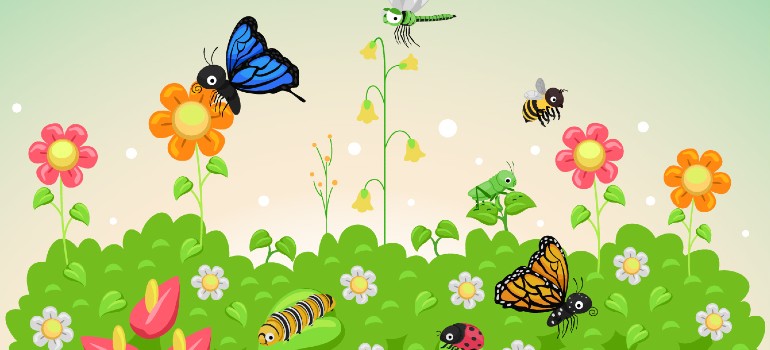
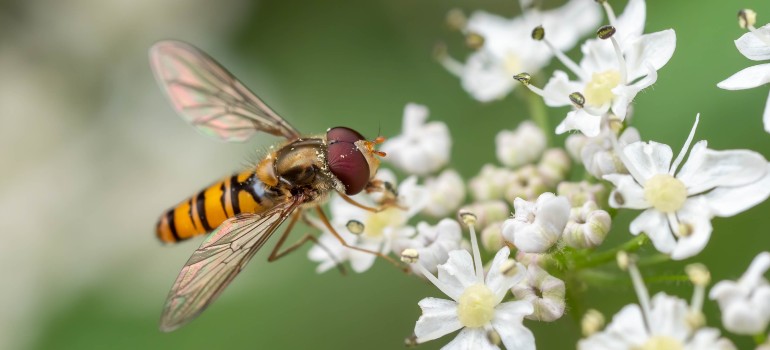
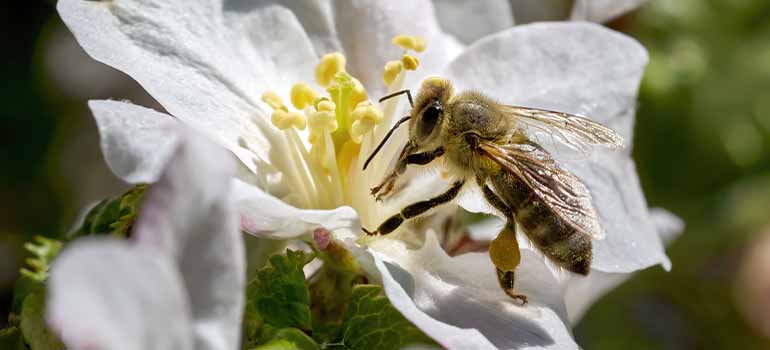
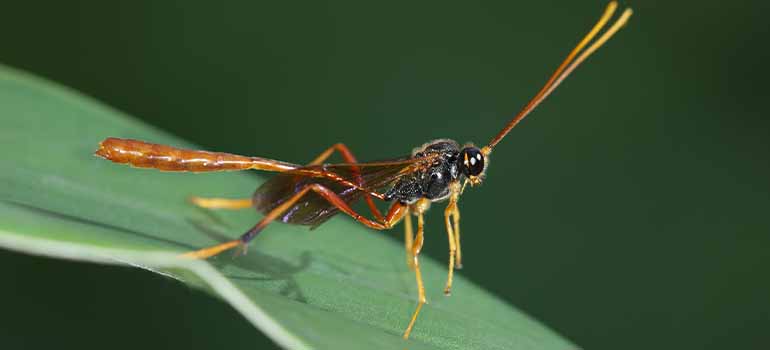
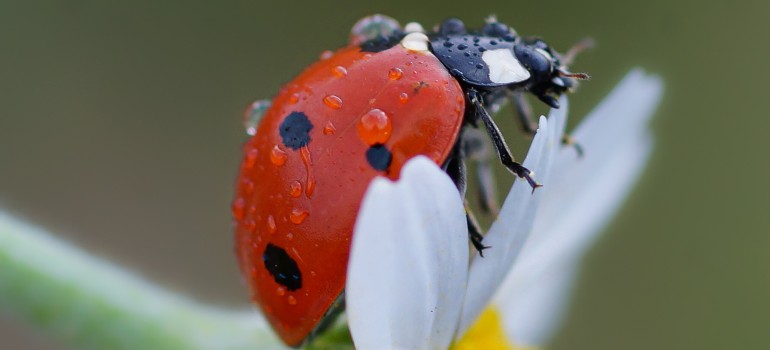
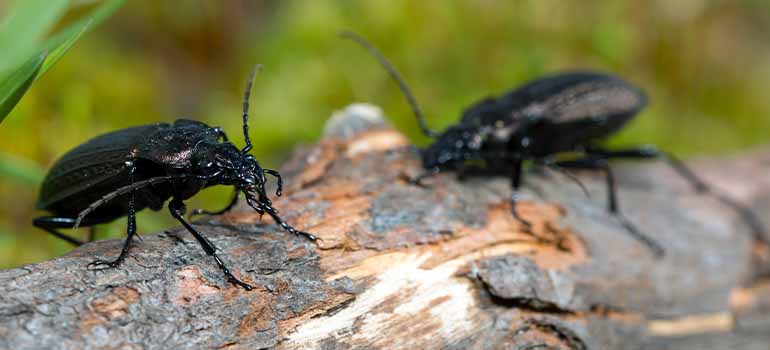
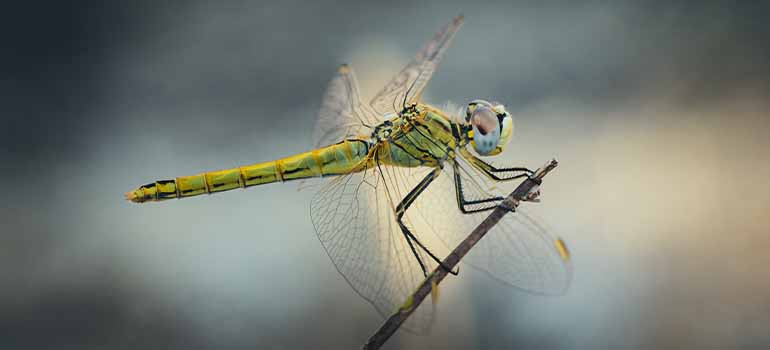
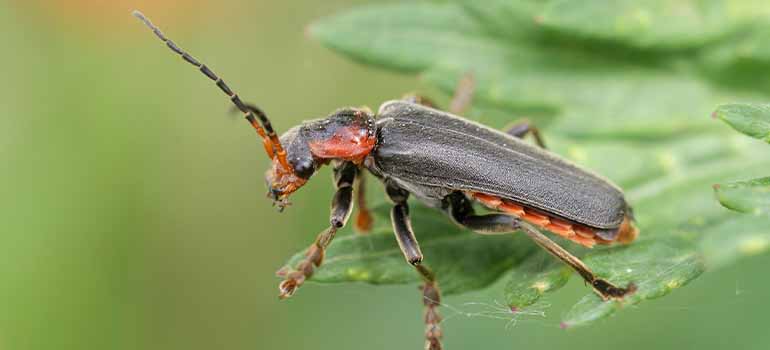
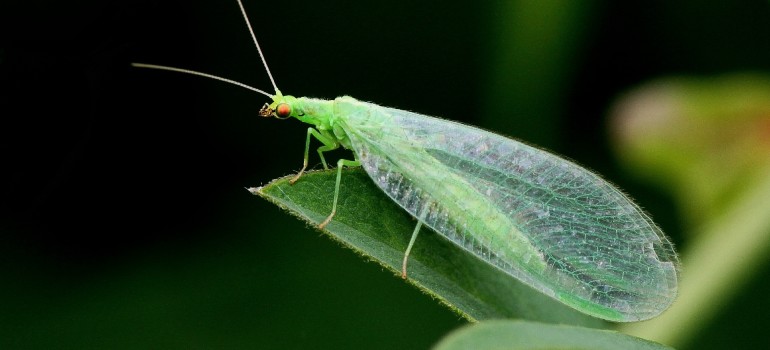
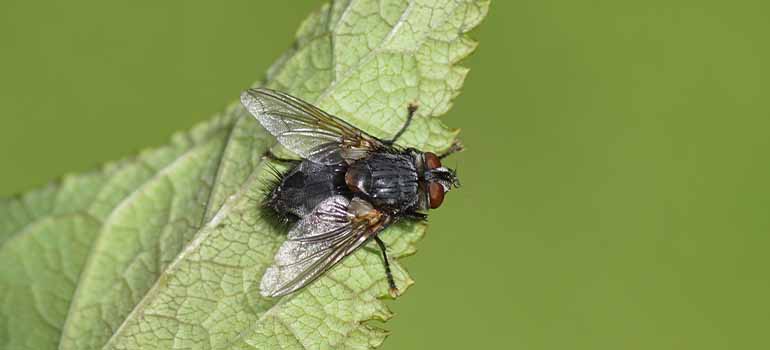
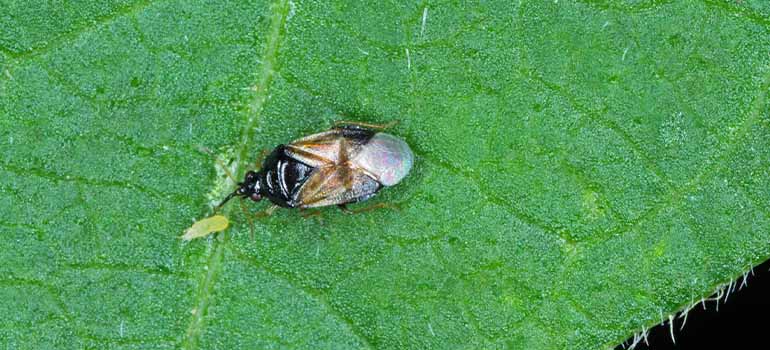

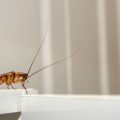


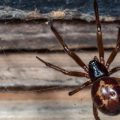
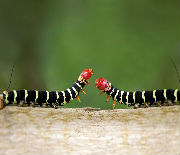
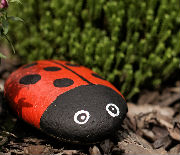
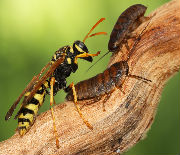
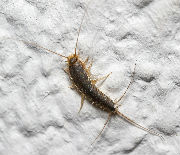
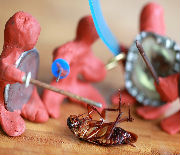
Leave a Reply